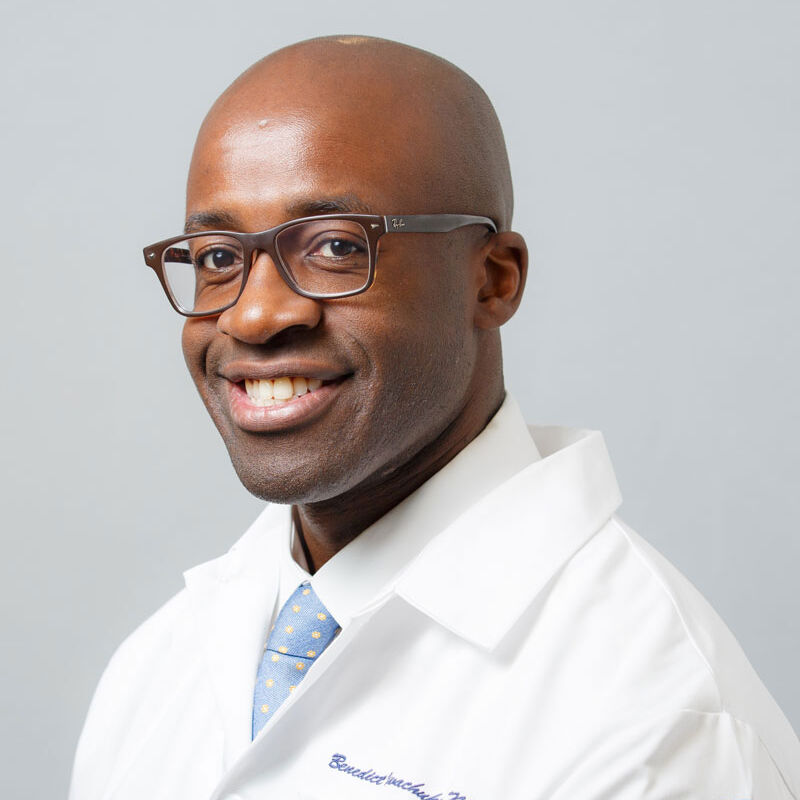MCL Reconstruction Surgeon

Are you an athlete who participates in contact sports? If so, you may be at risk of sustaining an MCL injury. The MCL can sustain an injury during certain twisting movements, direct contact to the outside of the knee, external rotation or combined force impacts when knee flexion is present. MCL reconstruction surgeon, Doctor Benedict Nwachukwu provides diagnosis as well as surgical and nonsurgical treatment options for patients in Manhattan, New York City, NY who have developed an MCL injury. Contact Dr. Nwachukwu’s team today!
What is the MCL?
The MCL, or medial collateral ligament is one of the four major ligaments in the knee. It is found on the inside of the knee joint and runs from the femur (thigh bone) to the top of the tibia (shin bone). The MCL is responsible for stabilizing the side-to-side motion of the knee and for protecting the joint against unusual twisting motions. If the MCL is torn or becomes chronically unstable after an injury, Dr. Benedict Nwachukwu, orthopedic knee surgeon, may recommend an MCL reconstruction. Patients in Manhattan, New York City and the surrounding New York boroughs can depend on Dr. Nwachukwu for a successful MCL reconstruction.
What is MCL reconstruction?
Medial collateral ligament (MCL) reconstruction is a minimally invasive surgical technique that uses a tendon graft to reconstruct the injured MCL. During this open procedure, a tendon graft from the patient (called an autograft) or from a donor (called an allograft) is used to reconstruct the damaged ligament. The graft is secured with anchors and screws in the position of the normal MCL. In situations where the MCL is not severely torn, an MCL repair or augmentation can be performed in order to provide stability to the knee. Maintaining the original anatomical footprint is important for the success of the reconstruction and it is important to seek out a trained orthopedic knee surgeon like Dr. Benedict Nwachukwu who has extensive experience in MCL reconstruction.
Who should have an MCL reconstruction?
A large number of MCL injuries can heal on their own without surgery. MCL injuries that are classified as a grade 1 or 2 are strains, sprains or a partial tear. An injury that is classified as a grade 3 is a complete tear and will require surgery. Other reasons to undergo MCL reconstruction surgery are:
- Knee instability or looseness in the knee
- Combined knee ligament injuries involving the MCL
- Failed ACL graft with knee instability
Dr. Nwachukwu will perform a careful clinical examination in order to assess the stability of the knee in concert with a careful review of your MRI study.
What is the recovery time after MCL reconstruction?
Dr. Nwachukwu will provide post-surgery protocols that may include the following:
- A protective knee brace to keep the joint immobile for a first day or two.
- Pain medication to be used as directed.
- An immediate rehabilitation program to achieve proper range of motion and to reactivate the quadriceps muscles.
- Stretching exercises
- Physical therapy with gradual strengthening exercises will continue until Dr. Nwachukwu releases the patient for sports activities.
In general, the healing time after an MCL injury depends on the grade of tear. Grade 1 tears typically take 2 weeks to heal; Grade 2 tears take 4 weeks to heal; and grade 3 tears can take approximately 6 weeks for the tendon to heal.
For more information on MCL reconstruction or on how to repair the medial collateral ligament please contact the office of Benedict Nwachukwu, MD, orthopedic knee surgeon serving Manhattan, New York City and the surrounding New York boroughs.